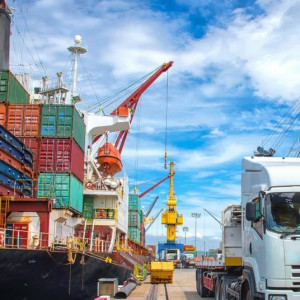No trucks, no haulage margin? Haulier criticises freight forwarding model


Chris Burley, commercial director at Walkers Transport, said hauliers owning and operating vehicles were taking work from intermediaries who absorbed none of the operational risk and were driving down profits by increasingly eating into haulage margins. But freight forwarders insisted their work carried commercial and credit exposure risks and that it was a multi-faceted discipline, in which they acted as sales agents providing hauliers with continual access to work. Burley said there was real value in a forwarder who knew a region and the transport firms to use and that in theory, forwarders provided flexibility and access to broader networks.
But he added that in practice it had evolved into a "margin-siphoning system, where those with no vehicles control the work and the hauliers doing the job carry all the cost and risk." He said: "The forwarder takes a cut, leaving hauliers working for slim or negative margins. "Often they are doing 100% of the work for 70-80% of the contract value.
"When asset-based operators can't make fair returns, they eventually exit the market or cut corners, leading to fewer qualified drivers and reliable fleets, rising costs, poorer service quality and an economy increasingly reliant on intermediaries who add cost but no capability." Burley said that the solution was a transparent management fee for the forwarder with only the company owning the vehicles earning a haulage margin. He added: "The current system rewards intermediaries with no vehicles while punishing those who physically move the freight.
"To protect UK logistics, jobs, and fair competition, the sector needs a balance of commercial fairness and legislative structure - ensuring the haulage margin is earned by those who own, operate, and deliver." However, the British International Freight Association (BIFA), which represents freight forwarders, argued that a lot of their members' work could not easily be taken on - or found - by haulage firms. Steve Parker, BIFA director general, said forwarders were also able to aggregate demand and smooth volumes, all while taking on the financial and administrative burden of customer management: "Freight forwarders tend to engage in international trade," he said.
"This is a multi-faceted discipline where many parties may be involved - truckers, warehouse operators, air or maritime carriers. "Typically, the forwarder secures and manage customers, handles credit and liability risks, and coordinates transport across modes and borders. Parker added: "Both forwarding and road haulage are highly competitive and relatively low yield and margin markets, and this places constraints on the charges that can be made as customers do shop around.
"A forwarder's margin on any leg of an international shipment, whatever mode of transport is used, reflects genuine value being delivered by the service provided by the forwarder, and the significant business risks involved." Sarah Paley, an assistant logistics manager who used to work in freight forwarding, said some companies preferred working with forwarders because of their sector-specific knowledge: "Potentially, customers would need multiple credit accounts with multiple hauliers if they are moving lots of freight to various different places," she said. "Some hauliers are better at certain regions then others.
A customer could end up having to have a directory full of contacts for different regions when they'd prefer the one freight forwarder who has knowledge on who is best to use for where.
"That's unfortunately where the margin comes in."